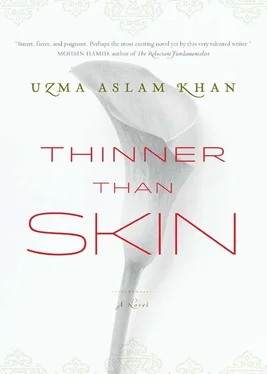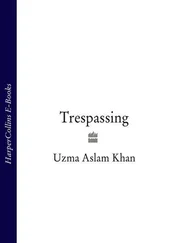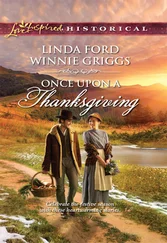Queen of the Mountains: The Whisper Chain
Maryam kept her back to him.
He was here, at last, the one who had left her a blue feather in her mountain shrine. The garlic breather and honey carrier. The one who once told her there was a land outside land, outside mountains, even. Now he was back, in her home in the plains, laden with stories, as when she was a child.
His voice was low and it was sweet. “You remember you used to ask from where the snow came? From where the river first flowed? You wanted to see the farthest away river, above the glaciers. And I would say this was asking to see heaven.”
He was waiting for a response but she kept her back to him. Sometimes it was desirable to put a mountain between yourself and someone else.
“Well,” he continued. “I have seen it. Heaven is in the steppe, where there live nomads like us, with names like ours, but with sounds added on, and, unlike us, they live free.”
“What sounds?”
“The ones you used to think were funny.”
She still did not turn to face him but she could never forget these oddities about him, from the signs to the jade — white jade did not bring calm, she would have to tell him now — to the flute, and his many attempts at changing his own name. Russifying, he called it. For instance, Rahman became Rakhmon or Rahminov or Rakhmanov.
“But you are not Rahman,” she would say.
“But I could be. And now I’m Rakhmanov.”
Another time he was Yousuf and his name was changed to Yusupov.
“Yusupov!” she giggled.
“Yusupov,” he repeated. “Of Yousuf.” He said they followed Islam, up in the steppe, where the Gujjars once came down from. But their alphabet had no “h.” So they did not say Mohammad.
“What do they say?”
“Mamedov. Or even, Mama .”
She was horrified and grew angry with him for taking the Prophet’s name in jest.
“But it’s the truth!”
So now he was spending more time up there, amongst a people without the letter h. From there he had come to her, with stories to chase away her fever dream and return her to this earth.
He said he had also been to a place called Leninabad and a place called Chinistan, where he made friends who gave him jade in return for leather. Better quality jade than he had traded for in the past — except that once. He cleared his throat, and she could feel his eyes at her back, searching for a way to find the stone around her neck. She said nothing. He started talking again. They drank mare’s milk and ate horse flesh, these new friends. He could drink the milk but not even taste the flesh of the animals so beloved to their tribe. He stuck to mutton and duck.
Maryam’s only idea of a duck was from the graves lining the road between Balakot and Naran. She did not want to think about graves.
He told her about flowers. She listened more closely.
“They have rare cloth, embroidered with flowers. This part of a flower. Look.”
He leaned over her reclining body, and dropped in her half-open fist a yellow flower. It was larger than her hand and he was pointing to its center, with his own hand, the hand from which she had once licked a honey tinged with garlic from his sweat. A hand darker than she remembered. The heart of the flower was the color of fire. From within the fire grew a cluster of silken threads, each tipped with a pale green bud. When she brushed the buds, she brushed his palm. A hundred pollen grains fell onto their flesh. Into the flower’s heart would dive a bee, she knew, for she had watched this happen many times, though never to a flower such as this. The bee would carry pollen on its fur, and from the pollen would come honey, and from the honey would come bliss.
The Uyghur, he was telling her, as though their hands had not touched, had at one time sewn those glistening threads in the heart of the flower into their cotton garments.
She wanted to taste the pollen on her skin. She could not bring herself to do this while he watched. He had stopped talking, but she could hear him breathe. Then, in a whisper as weightless as the gold spores: “The Kazakh nomads have a saying. Everything alive is in movement and everything that moves is alive. Wind and water, flowers and bees.” He paused again. “You must learn to move again, Maryam. Kiran has already found a way.”
When he left, she pressed the tip of her tongue to the tip of her index finger.
In the morning, she offered rice to the idol in her hidden lowland shrine, the shrine which did not cup her like the one in the mountains, nor hold any of the drawings that so captured her imagination, but which, in better times, her mother would decorate with ram horns and a yak tail.
She crouched in this shrine, which offered barely enough room to dream in, remembering how she had covered it in haste this April, in her hurry to leave for the mountains. She had not uncovered it till now. She was not meant to uncover it till September, when her people were meant to return. And now it was too late to properly cleanse her home, the way she was meant to have cleansed it in the spring. No one waved smoking juniper branches through sacred corners in July. So she stooped, thinking.
Down here in the plains, she needed strength. She needed armor against the sedentary people of this valley, among them those who had attended Kiran’s funeral rites merely to see if they were Islamic. If only they were still on the move, up in the highland pastures, where frictions between the settled and the free became as small as chicken feed. But they had been forced to cut the summer short; tensions rose like mountain walls. Maryam could hear their insults. Nomads were untethered. She could also hear the spirit of her mother answer, Well, better untethered than sedentary . To which the sedentary folk would retort, untethered women always went too far. They did not use the veil. They worked alongside men, herding cattle, gathering wood. They sweated like horses. And smelled even worse. Well, sedentary women were fatter than cows. It was good they kept all that droopy flesh covered. It had the texture of wet dough, upon which no man could rise . From behind double chins, they kept retorting, not a single nomad will rise to heaven. And where will you go, if you keep sitting? Still they kept on, nomads were riders. The men might know how to play polo and the women might know how to play men, but did either know how to play landlords? Or forest inspectors? No. They only knew how to kick their heels and run. At least we can run .
Maryam fingered the jade around her neck. It would not do to keep playing out abuses in her head. This only gave them life, made them fatter. She needed strength, and this meant starving the words that brought her pain. In truth, the valley was envious of nomads. They could tame the wildest steed, while sedentary folk, without even two legs to stand on, could not even saddle a chick.
When Kiran was a chick, Maryam carried her on her back in a cradle made of jute. She was quiet there, with toes against Maryam’s rib, fist in mouth, slurping a cube of rock candy. Hair loose; even then she never accepted braids. Maryam talked. She told Kiran about the fat Australian sheep the government was selling them, to replace the thin desi kind. They were happy with the sheep at first, despite the cost. Indigenous sheep yielded twenty kilograms of meat and two kilograms of wool. Foreign sheep yielded forty kilograms of meat and eight kilograms of wool. But they were finding out, too late, that fat foreign sheep were not as strong as thin desi sheep. They could not survive the icy winds and sudden snowdrifts of Kaghan Valley. They were fussy eaters. And they were slow-moving, adjusting poorly to nomadic living and complaining too much.
Читать дальше












